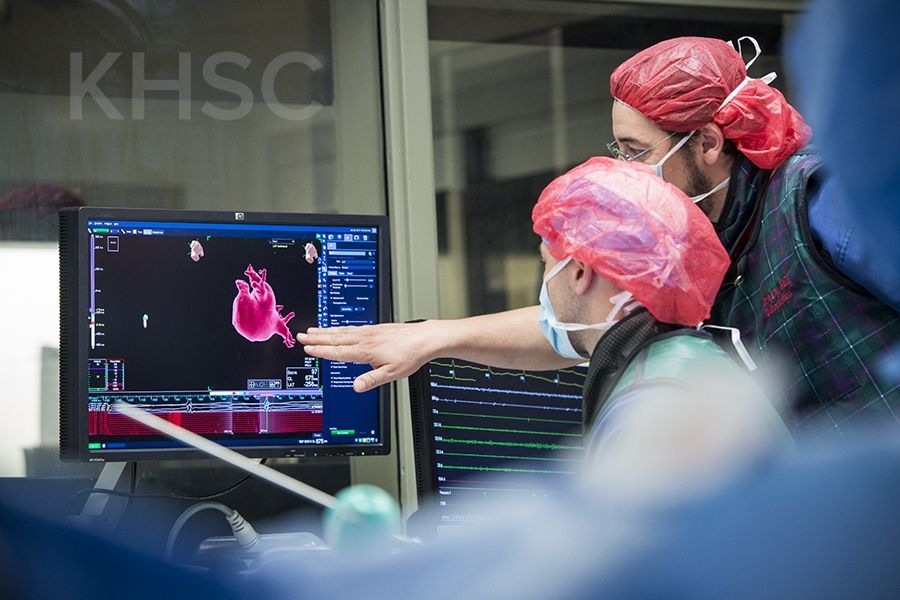
In a Canadian first, a hybrid cardiac ablation procedure has been successfully completed at Kingston Health Sciences Centre (KHSC). The procedure is a revolutionary treatment for patients who suffer from atrial fibrillation - the most common type of irregular heart rhythm.
The new procedure will help patients heal faster, stop or reduce their use of medication, as well as reduce the number of future hospital visits that they require.
“This new procedure represents a combination of the most advanced surgical techniques along with less invasive catheter techniques,” says Dr. Gianluigi Bisleri, a cardiac surgeon at KHSC and associate professor of surgery at Queen’s University. “Instead of the traditional approach to fix chronic irregular heart rhythms, we now offer an extremely innovative and effective hybrid approach.”
Atrial fibrillation affects approximately one in four Canadians. Historically patients have relied on medication along with traditional cardiac ablation procedures to help restore normal heart rhythms. During a traditional ablation procedure, physicians create scars inside the heart which prevent abnormal electrical signals from moving through the heart tissue. This traditional approach is typically performed either by inserting long, flexible tubes with wires - called catheters - into the heart through the patient’s groin or by using more invasive surgical approaches that often require opening the chest and stopping the heart.
With the new procedure, a cardiologist uses digital technology to map the inside of the heart while the surgeon performs ablation on the outside of the heart using another specialized device. This requires only three keyhole incisions to navigate to the heart, removing the need to open a patient’s chest.
“We are treating patients in a way we haven’t before,” says Dr. Ben Glover, a cardiologist at KHSC and assistant professor of cardiology at Queen’s University. “By combining technology with the knowledge and expertise of our medical teams, we are able to treat complex cases with a high success rate in a minimally invasive manner.”
The cardiac mapping system technology used during this procedure is the first of its kind to be used in North America and is a result of a strategic capital investment made by KHSC earlier this year. Known as the Ensite Precision cardiac mapping system, this technology provides highly detailed models and maps of the heart that allow physicians to diagnose a wide range of irregular heart rhythms.
In addition to treating patients in a new way, this procedure also offers new insights into atrial fibrillation that will help expand further medical research in the field.
“Through this novel procedure, we have been able to see the mechanisms of atrial fibrillation and the effects of this hybrid approach in an unprecedented way. This will allow us greater insights and understanding into this common heart condition,” says Dr. Bisleri. “We are extremely excited that KHSC is a pioneer in delivering this treatment which is due to the unique collaboration among the teams of cardiologists and cardiac surgeons.”
Atrial fibrillation is the most common type of irregular heart rhythm with more than 350,000 people in Canada estimated to have the condition. With this new approach, patients can expect a shorter hospital stay, lower risk of hospital re-admission and less dependency on medication, freeing up inpatient beds in hospitals and improving the patient’s outcome.
Gallery


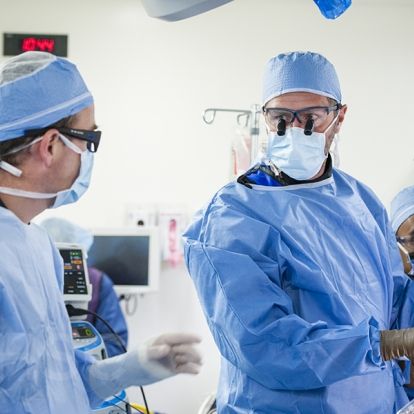
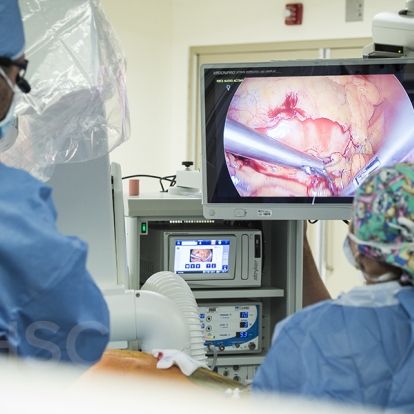
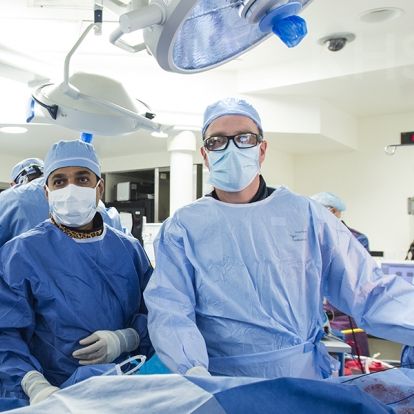
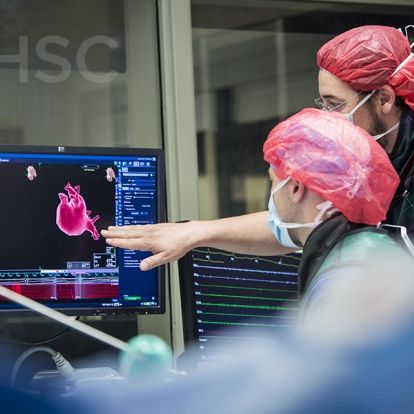
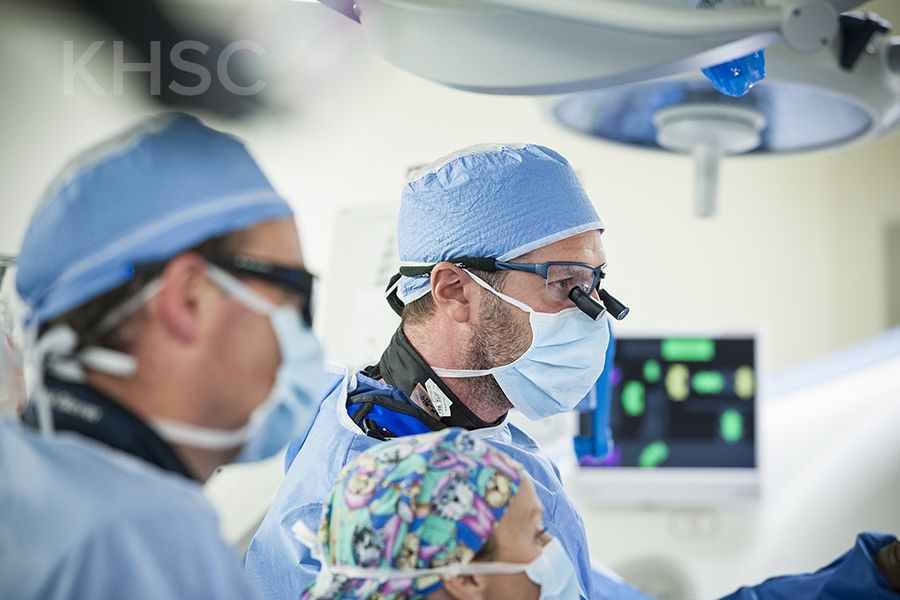
Cardiac surgeon, Dr. Gianluigi Bisleri (R) works along side cardiologist, Dr. Ben Glover (L) during the procedure at KHSC.
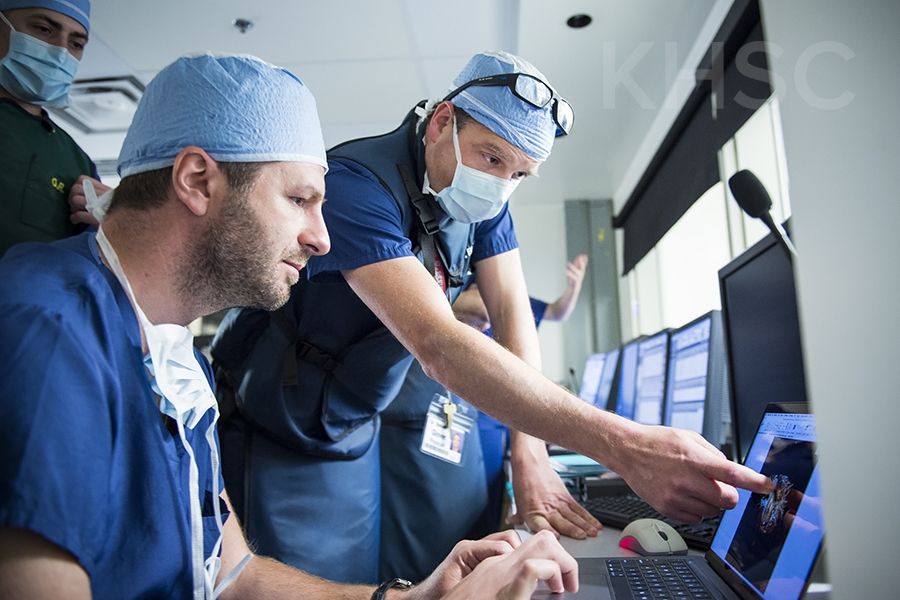
Cardiologist, Dr. Ben Glover (R) speaks with cardiac surgeon, Dr. Gianluigi Bisleri (L) prior to their procedure at KHSC.
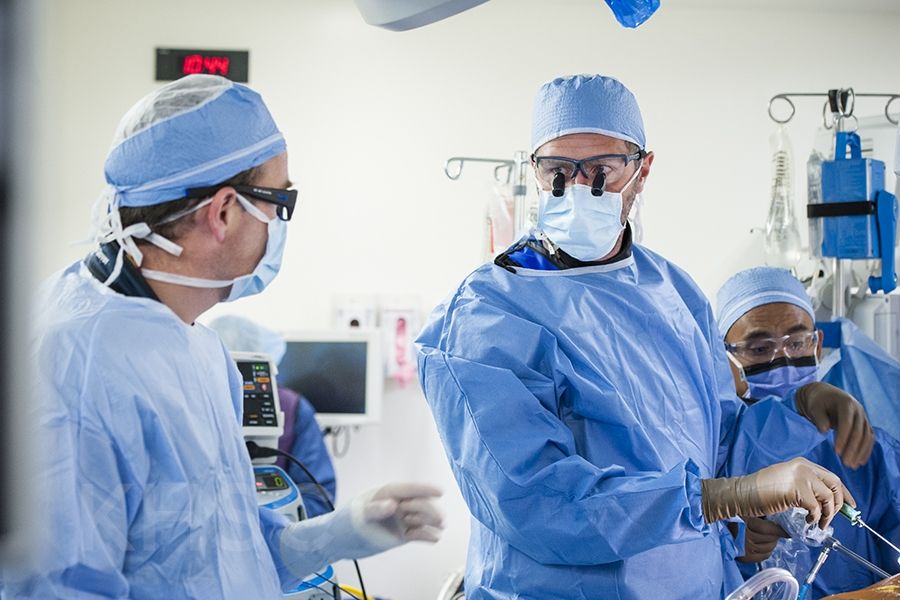
Cardiac surgeon, Dr. Gianluigi Bisleri (R) works along side cardiologist, Dr. Ben Glover (L) during the procedure at KHSC.
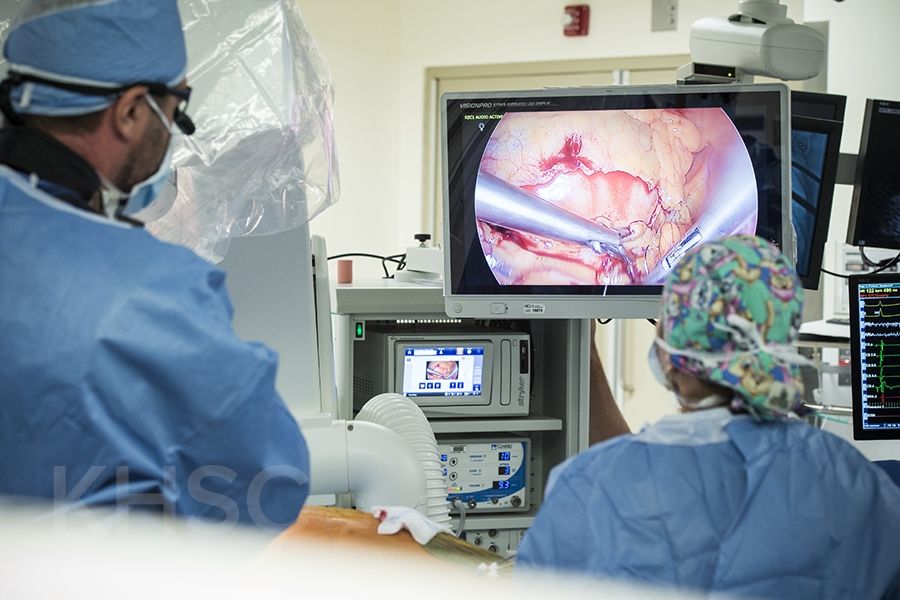
Cardiac surgeon, Dr. Gianluigi Bisleri (L) can see where he is working on the monitors inside the operating suite at KHSC.
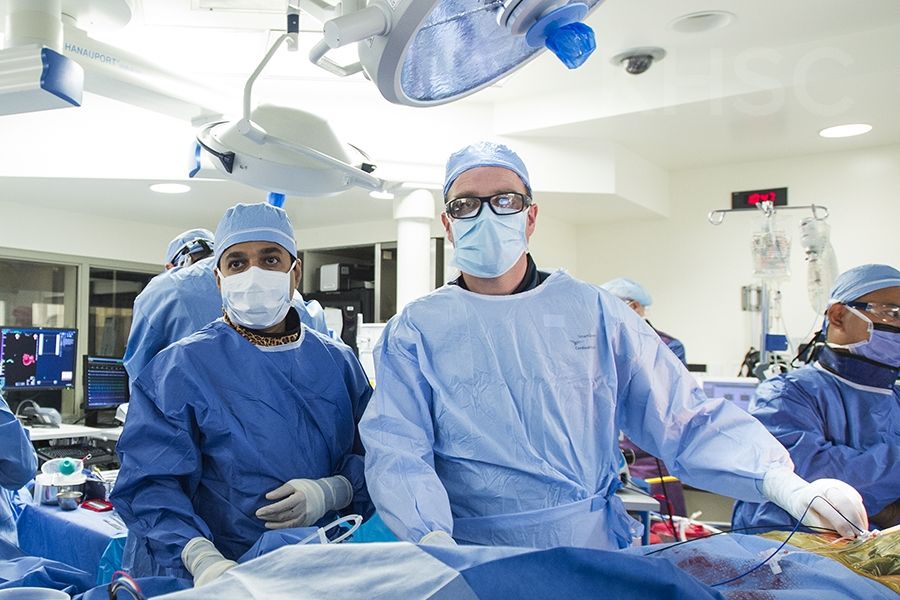
Cardiologist, Dr. Ben Glover (R) works at the patients' side during this hybrid ablation procedure at KHSC.
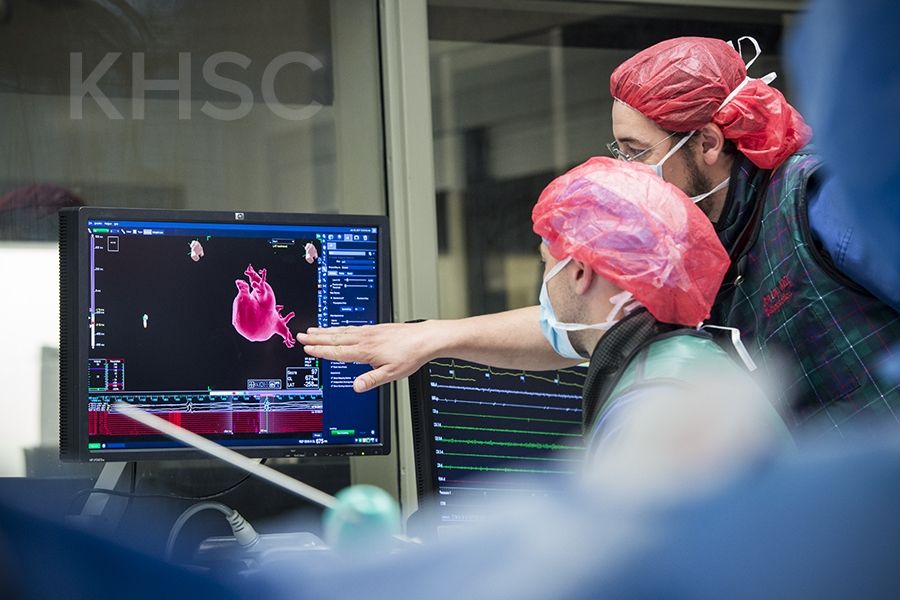
Support members from the team monitor various aspects of the procedure throughout the process.



